
Last week we launched Evo Fashion, our free five-month business support programme that will be running throughout 2024.
Taking place at The Trampery Fish Island Village, the event offered attendees the chance to hear from industry experts, learn more about the Evo Fashion programme and network with London’s sustainable fashion community over drinks and delicious canapés from Palm Greens.
Speaking to the crowd, Helen Lax, Director of Fashion District, said ‘We are looking forward to the next evolution of fashion and the power of fashion designers and fashion technology businesses who are thinking about embedding sustainability into all of their business practices.’
The programme, which is part of the Grow London Early Stage programme by London & Partners, and funded by the UK Shared Prosperity Fund, is designed to help early stage fashion businesses drive growth and integrate sustainability into every aspect of their businesses.
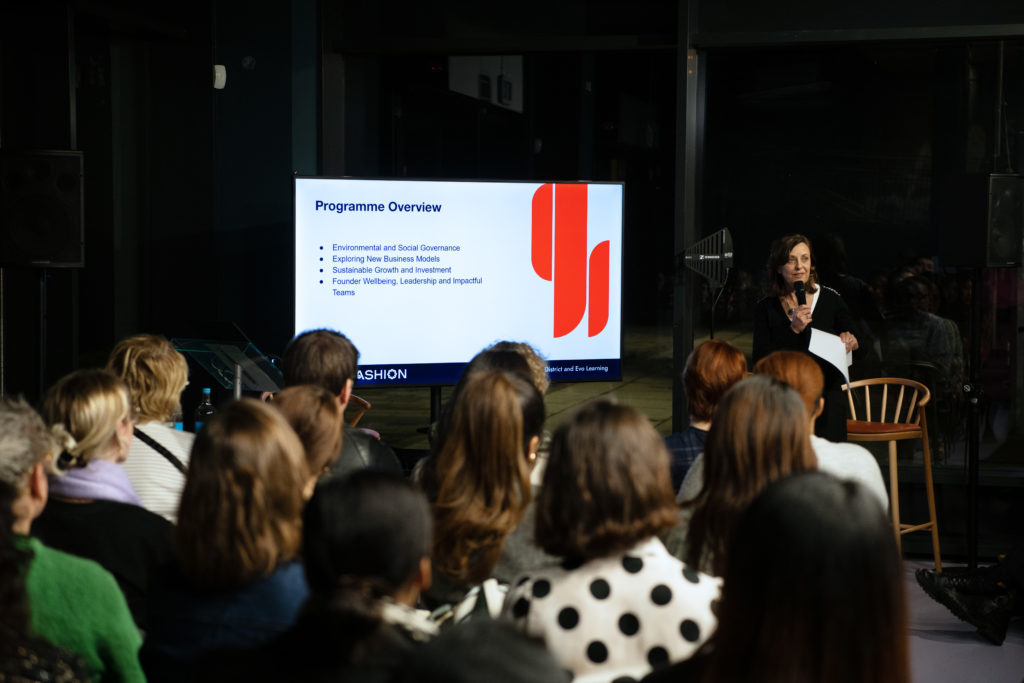
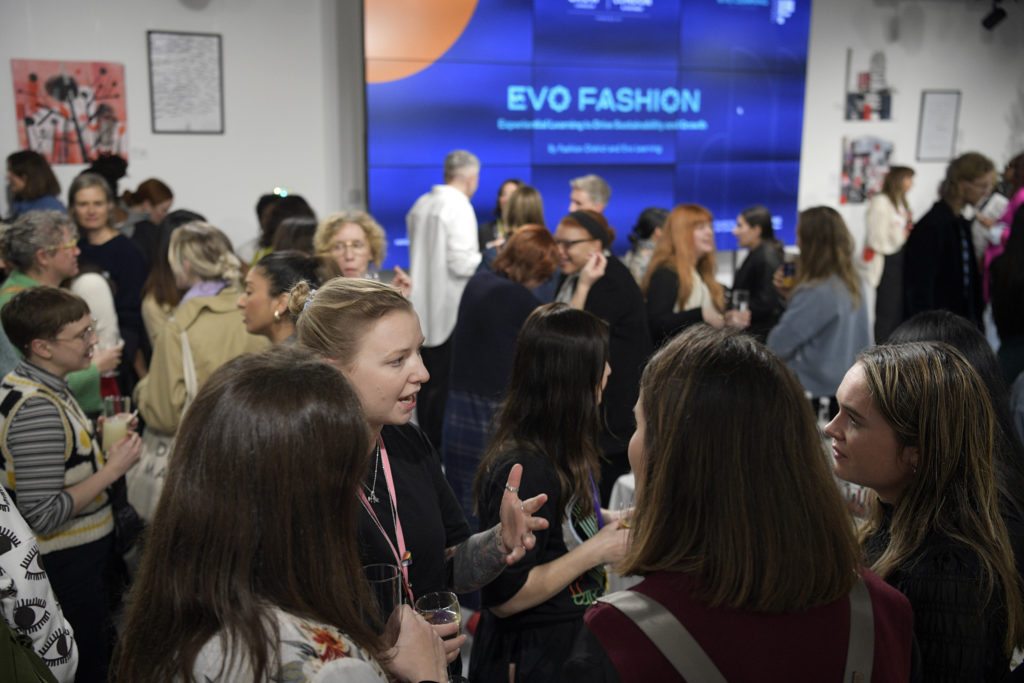
Image credit: Christian Sinibaldi
Evo Fashion in Action
Kicking off the event, Safia Minney, Founder of Fashion Declares, took to the stage with Debbie Luffman, Director of Think Circular, and Ngoni Chikwenengere, Founder of We Are KIN, for the ‘Evo Fashion in Action’ conversation.
Giving context to the need for sustainable innovations, Safia spoke about fashion’s impact on climate ecosystems. ‘We all know that overconsumption is driving a desperate situation. Currently, five percent of greenhouse gas emissions are said to be produced by the fashion and textile industry. That’s set to increase to twenty-five percent by 2050. We can’t let that happen. Fashion needs to move now.’
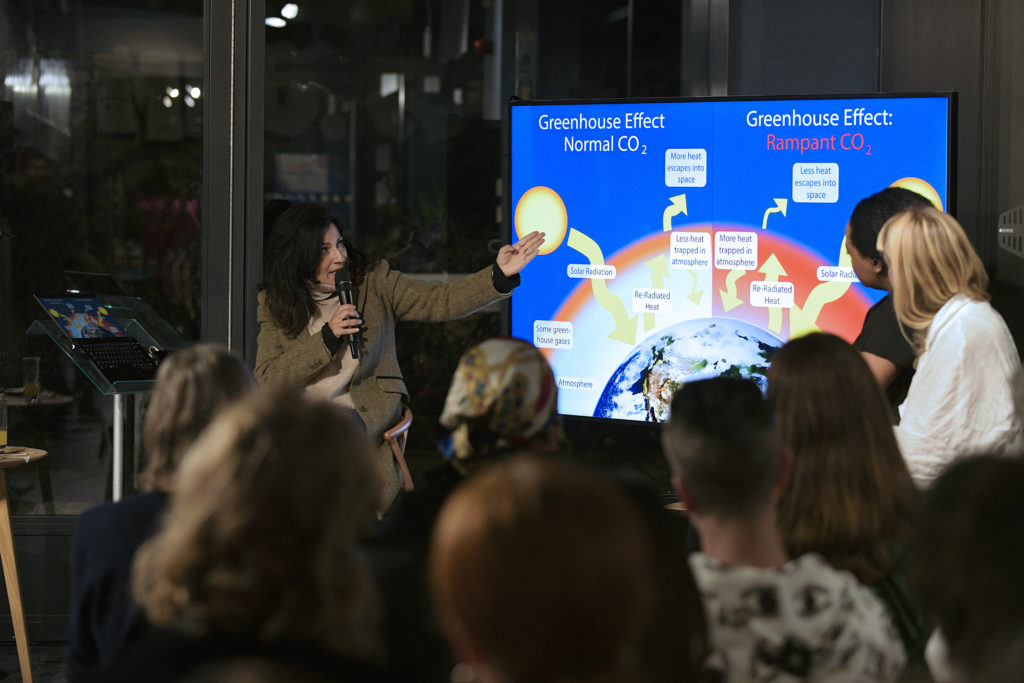
Talking about the ethical and sustainable practices she uses in her clothing brand, We Are KIN, Ngoni Chikwenengere told the audience, ‘One of the first things I wrote down when writing my business plan was my mission statement: ‘people and planet over profit.’ That’s my ethos and it’s what the entire brand is built on.’ Since launching five years ago, Ngoni is still staying true to her brand’s message with all of her clothes being manufactured in East London. ‘I want to know exactly what’s going on so I often drop by the factory because I want to see the conditions people are working in. The people who work there are paid a living wage, they look happy and the environment is clean. In terms of the fabrics, the cotton, linen, and wool are all sourced in the UK. We also use deadstock fabrics.’
When asked for her tips on securing deadstock fabric, Ngoni said, ‘If you don’t ask, you don’t get. It’s important to talk to people and ask lots of questions.’
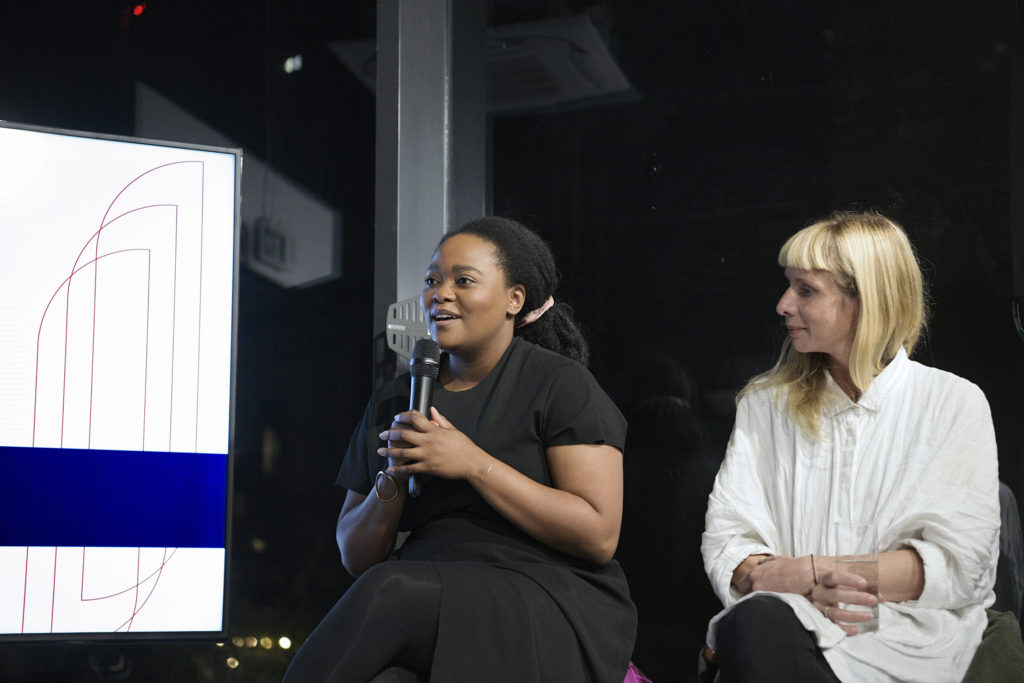
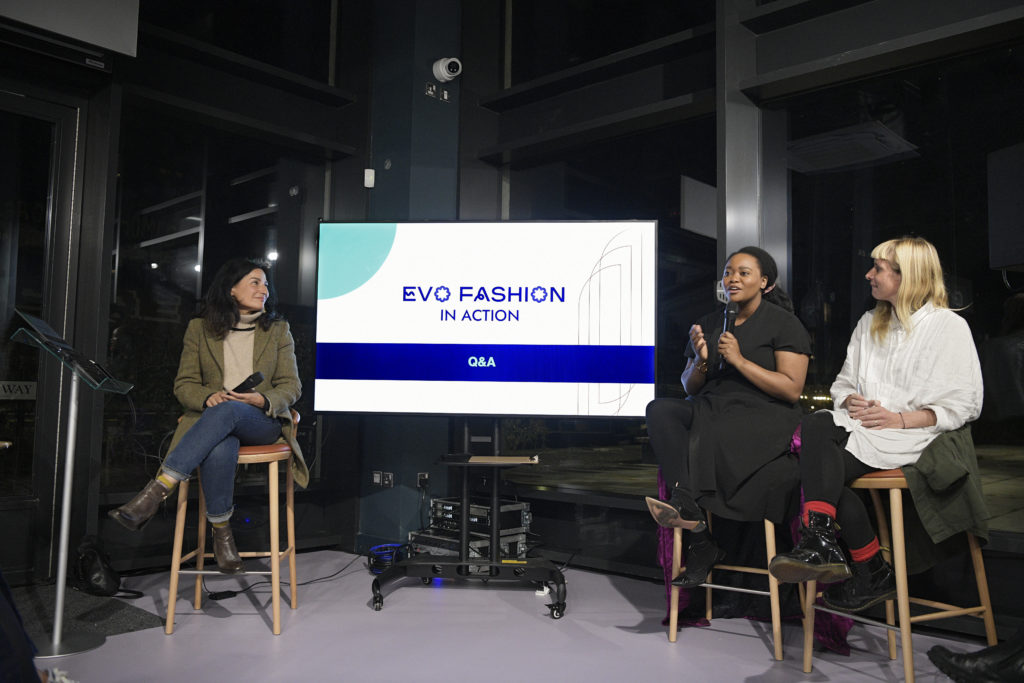
Debbie Luffman, Director of Think Circular, echoed the same sentiment. ‘To become fully sustainable as a brand you have to ask questions and refuse to settle for anything less.’
‘Change in our industry needs to be louder, because the larger organisations are listening – they really are well aware of the issues – but it can be harder for them to change. That’s why I say don’t rush to be a professional outfit too soon. This is your moment to get things right from the beginning stages of your brand and think about embedding sustainability into every aspect of your business, which many big brands are struggling with now.’
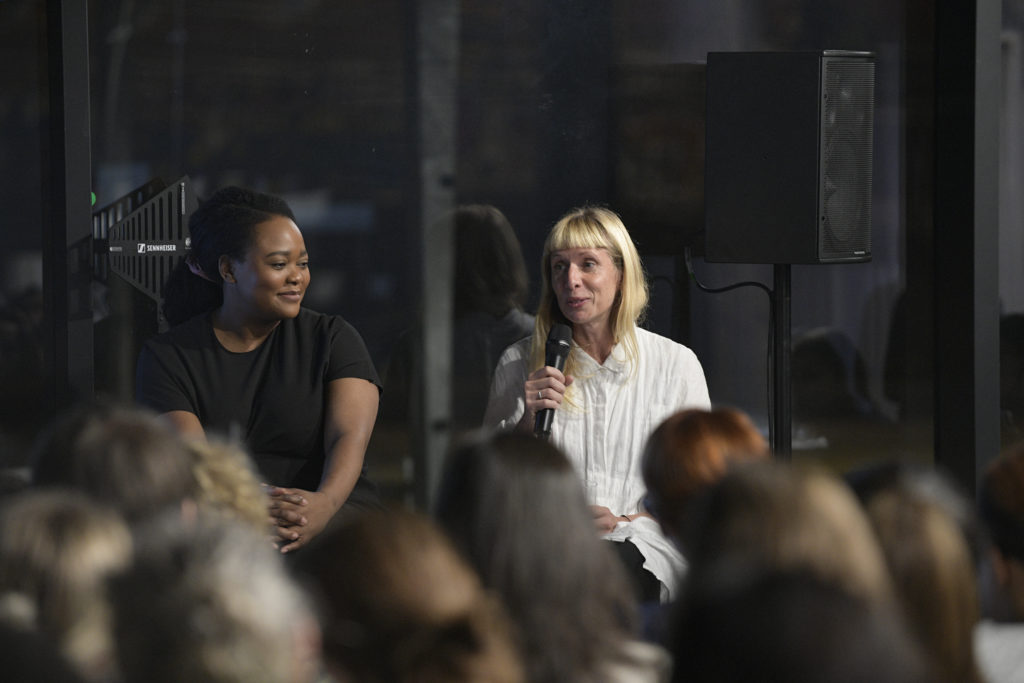
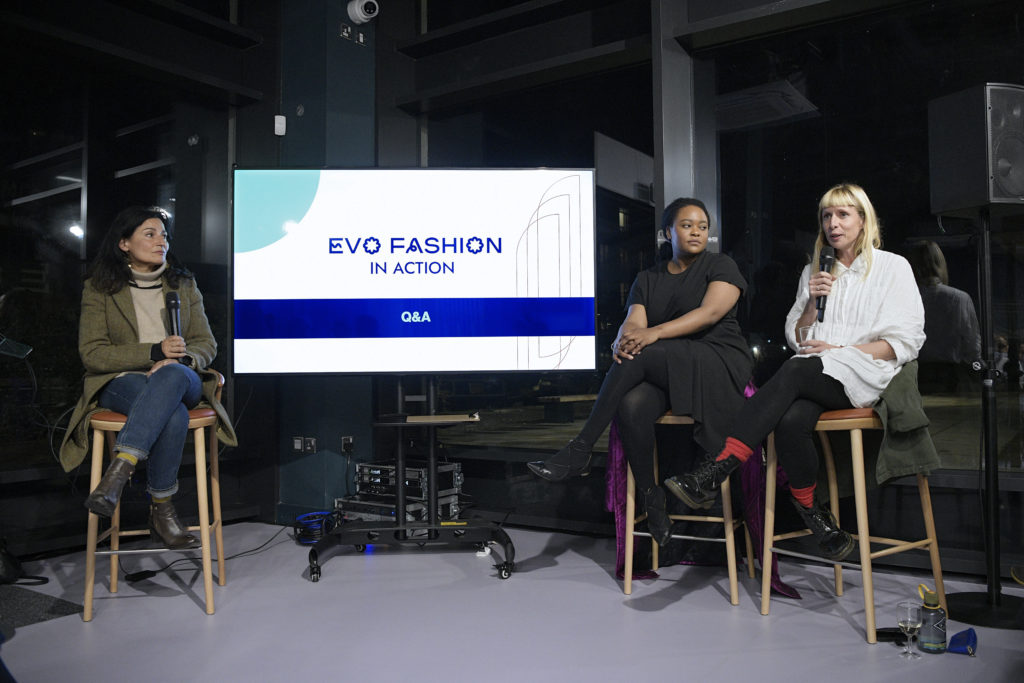
Afterwards the floor opened to questions, with one audience member asking whether consumers were ready for change. ‘Consumers are definitely ready,’ Ngoni said. ‘Shoppers love being at the forefront of innovation. If someone is offering you something new, shiny and sustainable or the same old thing, we all know we would choose the first option. Last November, I sold 800 units in one month, all made to order. The demand is there.’
Debbie said, ‘I think you have to think about the way you make your customer feel. I’m not sure if they care about fabric if I’m really honest with you, but how does it make them feel? Your job is storytelling. Tell the story. Where did it come from? What’s the provenance? What’s it going to do for them? That’s the narrative.’
Another audience member asked whether the panel thought there was competition between small sustainable fashion brands which creates contradiction when setting out to build a better planet. ‘If you share the same value models then you shouldn’t be in competition,’ Debbie answered. ‘In my opinion, IP doesn’t make sense anymore. We should have open source material that’s shared and serves each other. Different brand identities is the creative difference. I think we need to unpack the word ‘sustainable’ and have that open source collaborative mentality to break down those boundaries. You need to build opportunities where you both win.’
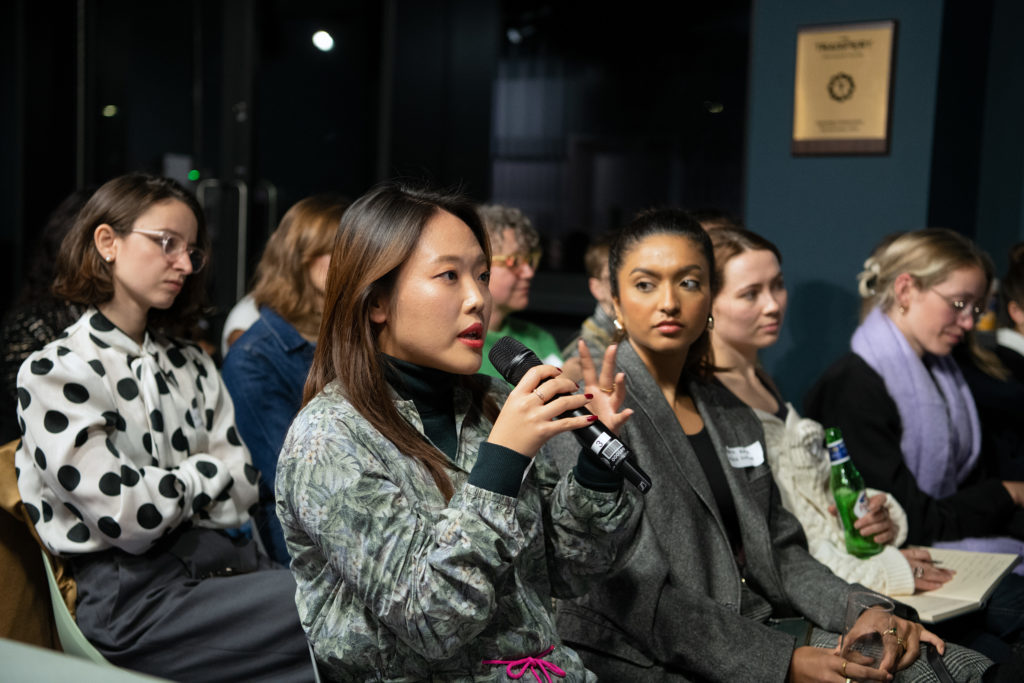
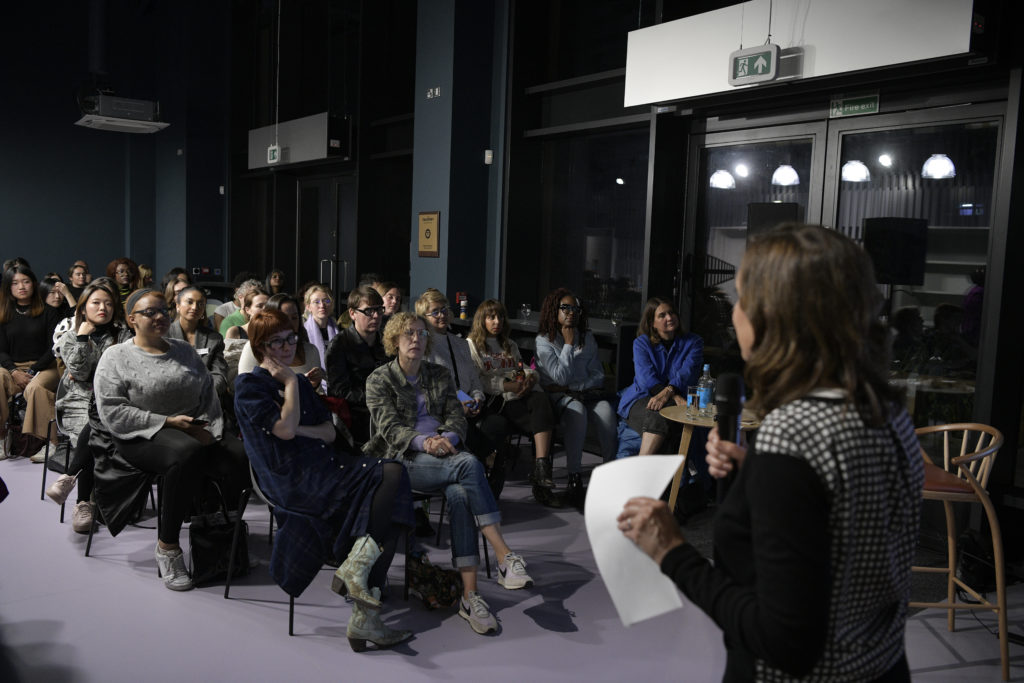
Introduction to Evo Fashion
Next up, Helen Lax took to the stage to present a comprehensive overview of the Evo Fashion programme. ‘There will be two programmes running throughout the year,’ explained Helen, ‘the first for fashion designers and the second for fashion technology businesses. Both are tailored to support innovation across the different subsectors of fashion.’
Designed to fit in with work commitments and delivered by experts, the programme will consist of a two-day intensive launchpad and four full-day masterclasses which will focus on different aspects of learning, including environmental and social governance, exploring new business models, production and innovation, sustainable growth and investment, finance and business planning, and founder wellbeing, leadership and impactful teams. Peppered in amongst the sessions and masterclasses, there will also be panels and talks, a 1-2-1 business diagnostic, three peer-to-peer learning workshops, a creative photoshoot, and the chance to present your brand at Fashion District’s Manufacturing Futures 2024 Industry Showcase to a room full of investors, brands, startups and innovators.
‘In terms of eligibility, you must be a registered business based in London. You must employ 2-5 people and you must have been trading for 18 months,’ said Helen. ‘We have to be able to tell from the application that you want to grow. By this I mean, growing to the scale that you want to grow to in the way that you want to grow. We want to see that you’ve got the ambition to make your business work and succeed sustainably and financially.’
With an incredible selection panel for the first cohort, including Vanessa Podmore, Founder of Podmore Consulting; Yvie Hutton, Director of Design Relations and Membership at the British Fashion Council; Charles Armstrong, CEO of The Trampery, and Helen Lax, Director of Fashion District, applications opened last Wednesday and will close at midnight on 18th January 2024.
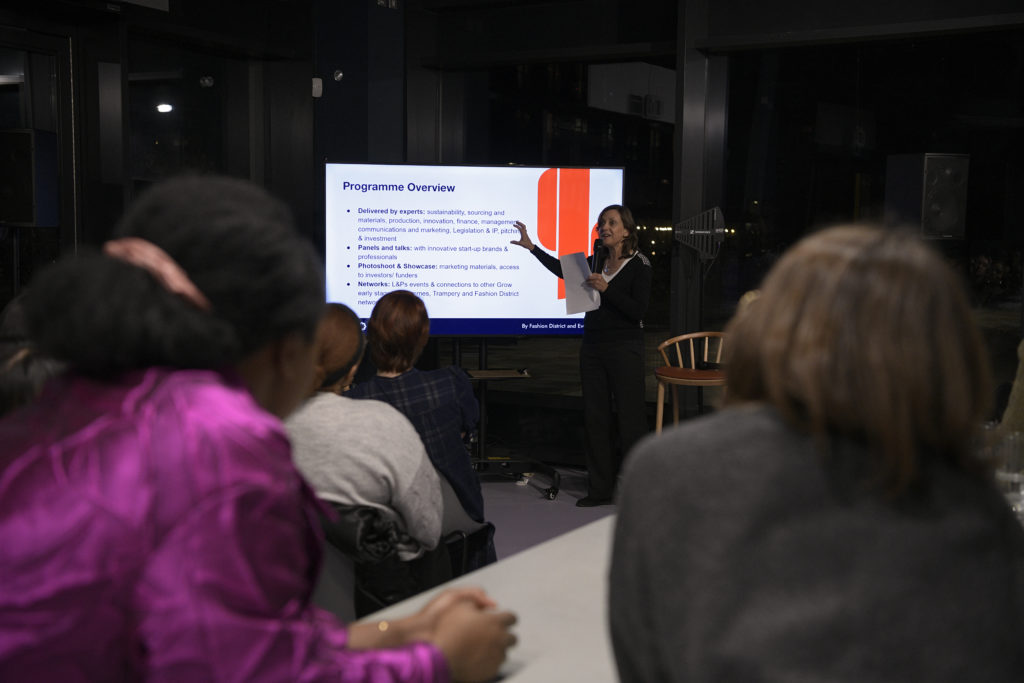
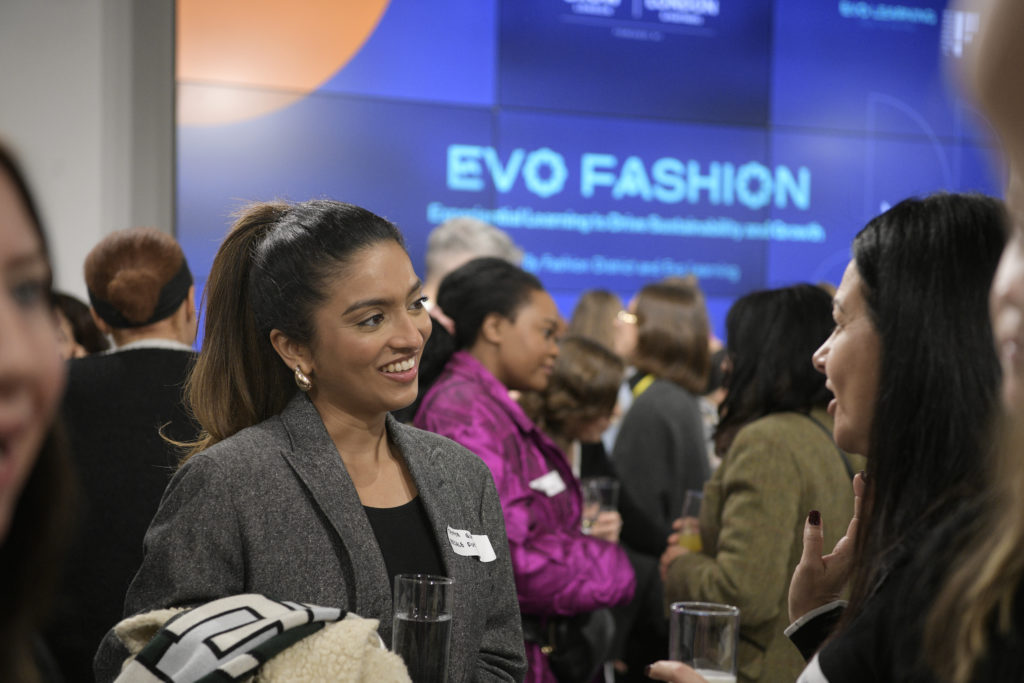
Closing the event, Deborah Latouche, founder of luxury modest wear brand SABIRAH, joined Helen on stage to discuss her experience of our previous sustainable accelerator programme. ‘Despite being held during the pandemic, the programme was really great,’ said Deborah. ‘It solidified for me a lot of the things I was already thinking about. I had always questioned the wholesale model, and so after doing the course I knew it was right for my brand to continue being demi-couture – made to order, made to measure. The fabrics are also all predominately end of life too.’
Speaking about her experience with Vanessa Podmore, who will be one of the Evo Fashion mentors next year, Deborah said, ‘My 1-2-1 masterclass with Vanessa was mind-blowing. She has a world of knowledge and I definitely think the course is well worth applying for.’
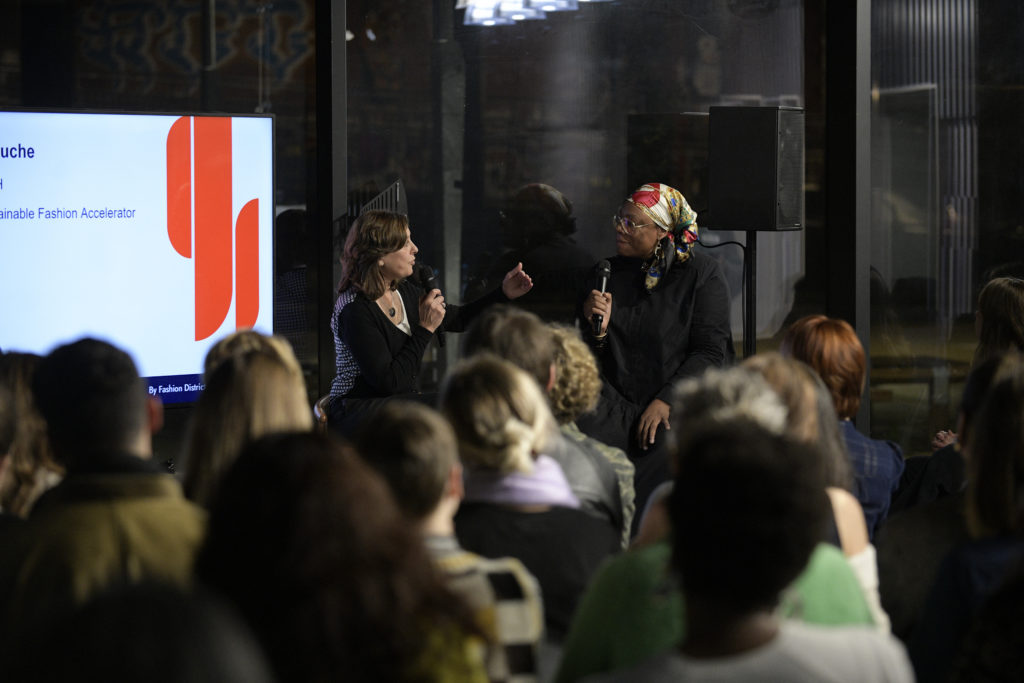
Are you ready to take your business to the next level? Applications for Evo Fashion are now open!
Follow us on Instagram, LinkedIn, Facebook and Twitter to keep up with future events and announcements!
All images by Christian Sinibaldi